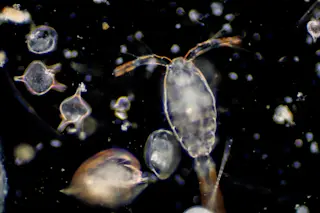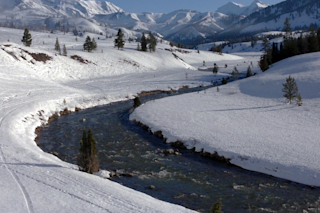Some of the smallest creatures in the sea are also some of the most influential. Plankton, a group of microscopic marine organisms that includes bacteria, amoebas and snail larvae, among other things, prop up the base of the oceanic food chain. Every sea creature, from clownfish to whales, ultimately depend on plankton for food.
Now, a new study that peers into a past before human influence shows climate change has upset the distribution of plankton across the globe. The finding has implications that could ripple up to affect nearly all of marine life the researchers say.
Most studies that look at how climate change is impacting the oceans show rising temperatures are forcing marine life to change where they live. But the majority of these studies use data collected only after World War II. This means they lack a pre-industrial baseline for comparison, said Lukas Jonkers, a paleoceanographer at the ...














